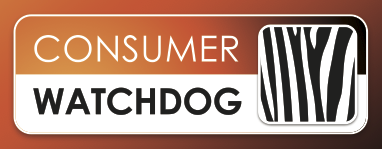And nor should they. Employment is no different to the sale of any service. Money goes one way in the relationship and a service goes in the other direction. When I take my car to a mechanic he delivers a service and I give him money in return. It’s a relationship of mutual benefit. The same goes for the network that connects my cellphone to the rest of the world, my internet service provider and the companies that provide me with electricity, water and TV. They offer me services because, and only because I give them some money.
I’m stating the obvious but they’re not doing it because of their good nature. That’s the nature of a free market. Adam Smith wrote in 1776 in his book “An Inquiry into the Nature and Causes of the Wealth of Nations” about this. He wrote:
“It is not from the benevolence of the butcher, the brewer, or the baker that we expect our dinner, but from their regard to their own interest. We address ourselves, not to their humanity but to their self-love, and never talk to them of our own necessities but of their advantages. Nobody but a beggar chooses to depend chiefly upon the benevolence of his fellow-citizens.”Things are no different 241 years later. The supermarket, bank and insurance company you select aren’t offering you services because they like you and care about your interests, they’re offering services because they want to make money. The smaller stores, like my local hardware store, sell things because it feeds the owner’s children and secures a comfortable retirement for them, the larger companies are feeding the children of their shareholders.
It’s even true when you look at the things they do that might appear kind and generous. The loyalty card that your supermarket wants you to carry and display every time you buy things isn’t anything to do with loyalty, it’s about monitoring your spending patterns. They want to record and analyse what you’re buying so they can target advertising in your direction. There’s nothing wrong or even immoral about that, it’s self-interested, intelligent business.
It’s not because they love us, it’s because they love the contents of our wallets and purses.
I sometimes describe myself as “loyal” to a very small number of brands it’s not really loyalty, it’s just about a preference based on experience. I don’t think I owe any loyalty to any company because I don’t think loyalty is valid when you’re paying for something. I’m not really loyal to Apple because I’m paying them for the products they sell me. I’m not loyal to Air Botswana or Virgin Atlantic because I pay them for my tickets. In fact, they should be the ones being loyal to me. I give them my money.
It’s exactly the same with employment. You have no obligation to be “loyal” to your employer. You don’t owe a thing to the company that pays your salary. I’m obviously not suggesting that you don’t owe them confidentiality, adherence to working hours and deadlines but loyalty is something very special. Loyalty needs to be earned and I don’t think an employer often goes far enough to deserve that. Assuming you work the hours that are set, fulfil the tasks given to you and act in a professional fashion, I think your obligations are complete.
In fact, whether it’s when you’re shopping or going to work the main loyalty you owe is to yourself.
My colleague ended his recent talk to our customers by suggesting what he thought your primary focus should be when you’re at work.
Learning.
The only thing that has a chance of making our lives better, other than blind luck, is learning new things. Whether it’s at your workplace, place of education, on the bus, sitting at home or in front of the TV, you really should spend some of your day learning things.
Some of them might be academic so qualifications (genuine ones of course), workshops and training sessions are all worthwhile but experiences are even more important. When you go for an interview with a smart, exciting new employer they’ll be far more interested in the fascinating, transformative, educational experiences you’ve had, not some pointless lecture series you attended a decade ago at university. They’ll want to know what projects you worked on and what you learned from them. They’ll want to hear that you’re the type of person who always says yes to new opportunities.
Or it can even be something totally different. Years ago I interviewed a guy for a vacancy and I noticed that there was an eighteen month gap in his CV (a hint, HR people look for that sort of thing) so I asked what he’d been doing. I was unemployed, he said. How did you occupy that time, I asked? Well, he told us, apart from looking for a job, he’d learned to play the trumpet.
We offered him the job, largely based on that comment.
As consumers we also need to learn new things. We need to lean about the new technologies that will affect the food we eat and the products we use. We need to learn about genetically modified foods, modern communications technology and security issues. Perhaps more importantly we need to learn where we should place our loyalty. And where we shouldn’t.
So forget about any loyalty you might think you have to your bank, your cellphone network provider and your local supermarket, in fact any company that has your business. Instead, ask yourself what they’ve done recently to earn that loyalty. If you can’t think of anything then you need to demonstrate your lack of loyalty. Contact your bank, your network provider, your ISP, anyone who offers you a service and ask them what they’re prepared to do to earn it.

No comments:
Post a Comment